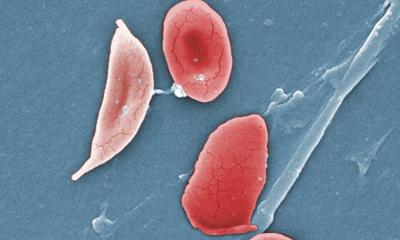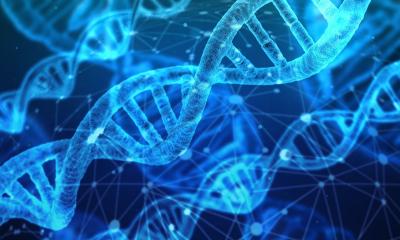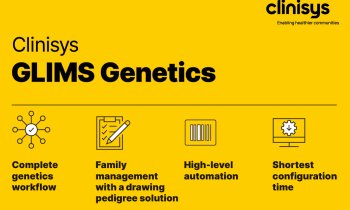News • CRISPR and co.
Patent law could curb unethical human-genome editing
A new paper co-written by a University of Illinois Urbana-Champaign scholar who studies the legal and ethical implications of advanced biotechnologies outlines an unexplored tool to regulate the medically and ethically dubious practice of heritable human-genome editing: patent law.

Applied judiciously, patent law could create an "ethical thicket" around human genome editing that ultimately discourages access to "germline editing"—that is, changing sperm and egg to create designer children—in more permissive countries such as China, Greece, Mexico, Spain, and Ukraine, said Jacob S. Sherkow, a professor of law and an affiliate of the Carl R. Woese Institute for Genomic Biology at Illinois.
The World Health Organization has explored international governance tools for human genome engineering, but as long as individual countries are allowed to set and enforce their own policies, the possibility of people engaging in medical tourism to other countries to circumvent domestic prohibitions remains a risk, the authors said in a paper published by the Journal of the American Medical Association.
"A lot of policymakers and medical practitioners are concerned with some of the genomic editing technologies out there, specifically with technologies that focus on allowing parents to pick and choose their children's height, eye color, skin tone and the like," Sherkow said. "Generally speaking, reproductive technologies are somewhat regulated, but U.S. rules are totally different from what they are in Canada, certain EU countries, the United Kingdom or China. And there is no international enforcement agency out there that's going to stop people from engaging in genetic medical tourism.
"So there isn't much international harmony on the issue, and it's just inherently something that's pretty inimical to an international governance framework. But the gene-editing technology itself is patentable—and that could potentially be an under-the-radar tool to thwart this undesirable behavior."
There's already a trend in the U.S. toward patenting human heritable germline-editing technology, Sherkow said. "Patent protection affords researchers and their institutions significant power over the ethical limits of using such technologies," he said. "For institutions that develop these technologies, it's essential to build the ethical limits of their intellectual property into the patent licensing process."
Even though patents are only enforceable in whatever country they're granted, using patent law as an enforcement mechanism would potentially allow owners to go to court "to stop someone else from using a piece of technology in a way that they don't like," Sherkow said.
"The typical economic conceit behind patents is it allows an inventor who doesn't like that they're not getting paid for something they created to sue," he said. "But that scope can also include the ways in which the technology is being used, like if it's being used in an unethical manner by others."
Sherkow and his co-authors said this could be especially important for countries where patent laws and regulatory systems surrounding gene-editing technologies diverge.
"Some countries have strong patent protections but weak regulatory protection, while other countries are the opposite," Sherkow said. "Using patent protections that are granted in countries that otherwise have a weaker regulatory system—we think that's an economically sensible and politically feasible path forward."
As a strategy, it's not a silver bullet but a hurdle to trip up bad actors, Sherkow said. "It's not a complete solution by any means, as it relies on private interests to police the social harms of a private activity," he said. "But patents present an opportunity to combine the tools of commercialization and ethical behavior in a manner not readily available in other enforcement mechanisms, especially given the disparate international regulation. So this is a particularly important moment to consider ethical governance by patent, and we think it's a pretty significant arrow in the regulatory quiver."
Source: University of Illinois at Urbana-Champaign
31.08.2021










